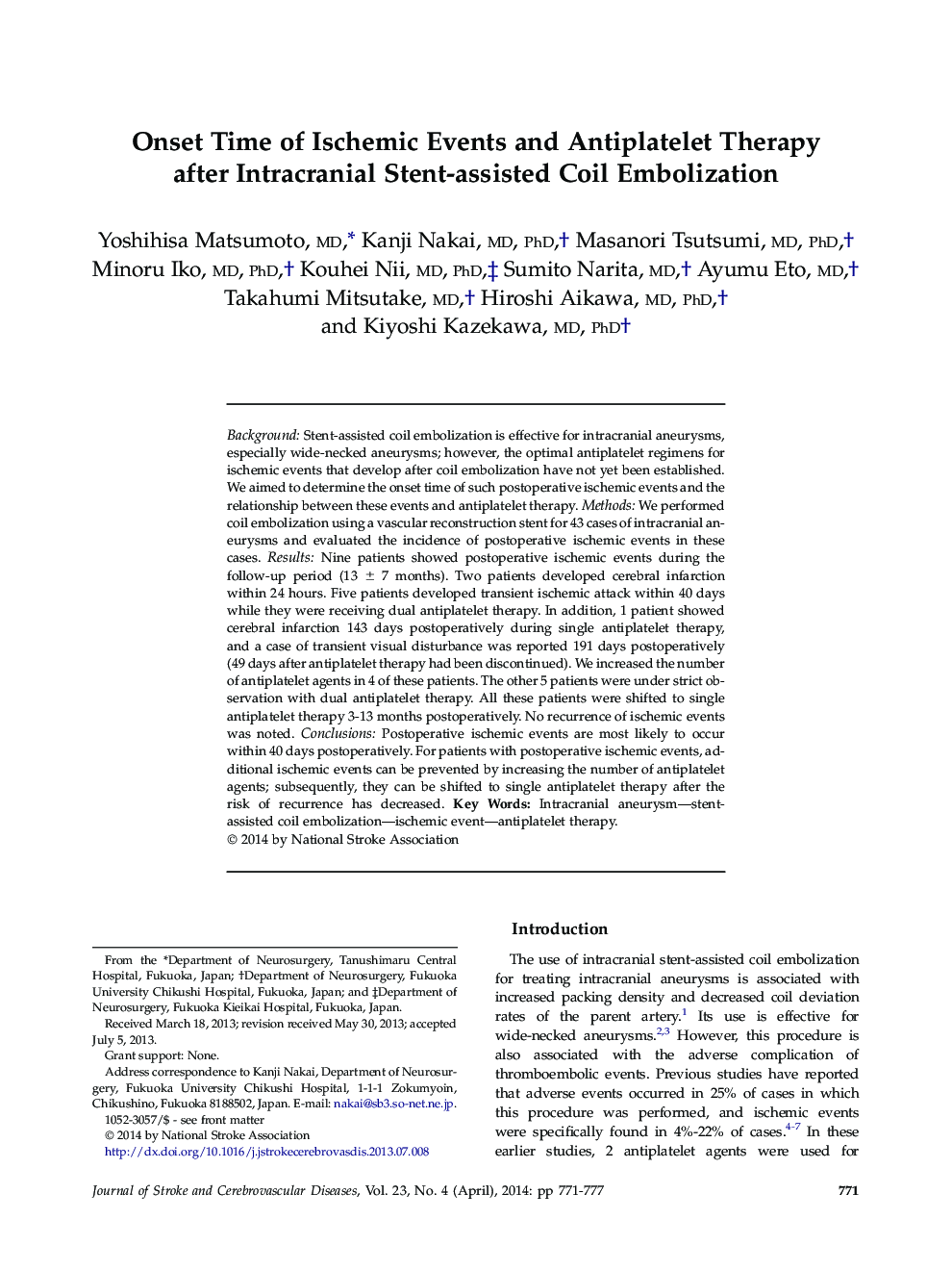| Article ID | Journal | Published Year | Pages | File Type |
|---|---|---|---|---|
| 2703995 | Journal of Stroke and Cerebrovascular Diseases | 2014 | 7 Pages |
BackgroundStent-assisted coil embolization is effective for intracranial aneurysms, especially wide-necked aneurysms; however, the optimal antiplatelet regimens for ischemic events that develop after coil embolization have not yet been established. We aimed to determine the onset time of such postoperative ischemic events and the relationship between these events and antiplatelet therapy.MethodsWe performed coil embolization using a vascular reconstruction stent for 43 cases of intracranial aneurysms and evaluated the incidence of postoperative ischemic events in these cases.ResultsNine patients showed postoperative ischemic events during the follow-up period (13 ± 7 months). Two patients developed cerebral infarction within 24 hours. Five patients developed transient ischemic attack within 40 days while they were receiving dual antiplatelet therapy. In addition, 1 patient showed cerebral infarction 143 days postoperatively during single antiplatelet therapy, and a case of transient visual disturbance was reported 191 days postoperatively (49 days after antiplatelet therapy had been discontinued). We increased the number of antiplatelet agents in 4 of these patients. The other 5 patients were under strict observation with dual antiplatelet therapy. All these patients were shifted to single antiplatelet therapy 3-13 months postoperatively. No recurrence of ischemic events was noted.ConclusionsPostoperative ischemic events are most likely to occur within 40 days postoperatively. For patients with postoperative ischemic events, additional ischemic events can be prevented by increasing the number of antiplatelet agents; subsequently, they can be shifted to single antiplatelet therapy after the risk of recurrence has decreased.
